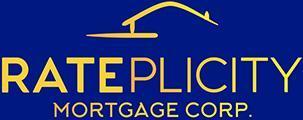Refinance
With a refinance, you replace your mortgage loan with a new loan and pay off the old mortgage with funds from the new one. You typically refinance to save on rates, however it can accomplish a lot more than just lower interest. You can also restructure to shorten the loan term and save more on interest. Refinancing can also allow you to access the equity that you have in your home allowing you to pay off debts, do home improvements or take care of educational expenses.

Calculate Your Monthly Payment
Overview
Here is a list of common reasons to refinance your home:
- Reduce the total interest paid over the life of the loan
- Reduce the cost of each monthly payment
- Shorten the length of the loan
- Change rate type (for example, from adjustable rate to fixed rate)
- Eliminate mortgage insurance premiums
- Draw cash out to pay off other expenses or higher-interest debts
A timely refinance can do wonders for your bank account. See for yourself.
Refinancing FAQs
How quickly can I refinance a mortgage?
“A refinance can take anywhere from 2 to 6 weeks but it varies depending on the lender’s policies, the loan type, and your financial situation.
Here are some of the steps involved in the refinancing process and the approximate timeline for each step:
1. Pre-approval: The timeline for pre-approval by your lender can take anywhere from a few hours to a few days.
2. Application: Completing the refinance application can take a few days to a week.
3. Appraisal: Getting the property appraised to satisfy your lender will take a few days to a week.
4. Underwriting: This step involves the lender determining if you meet their lending criteria by reviewing financial documentation which take about a week or more.
5. Closing: The final step is closing on the new loan which can take a few days to a week.
Make sure to work with a trustworthy lender and quickly provide the required documentation to help expedite the process.”
How do I know if I'm getting a good refinance rate?
Always make sure to compare rates from multiple lenders. Researching current interest rates online and talking to different lenders to get personalized quotes is a great way to get a good deal.
Other factors that can impact the overal loan cost include loan type, loan term, closing costs, and points, which are fees paid to the lender to get a better interest rate.
These factors and comparing prices can allow you to get a better idea of whether you’re getting a good refinance rate. Make sure to weigh all the factors before making a decision since refinancing can have benefits beyond lower interest rates like reducing your monthly payments or changing the term of the loan.
Credit score requirements are more relaxed for government-backed programs such as the FHA or VA. The FHA requires a minimum credit score of 580, and the VA has no credit score requirement.
Lenders also consider other factors, such as your debt-to-income ratio, employment history, and payment history. Always make sure to shop around and compare lender offers to figure out the best refinancing option for your situation.
What credit score do you need to refinance a mortgage?
The credit score needed to refinance a mortgage varies by lender and the type of loan but a score of 620 or higher is typical for a conventional mortgage refinance. Some lenders want a score of 660 or higher for a better deal on rates or terms.
Credit score requirements are more relaxed for government-backed programs such as the FHA or VA. The FHA requires a minimum credit score of 580, and the VA has no credit score requirement.
Lenders also consider other factors, such as your debt-to-income ratio, employment history, and payment history. Always make sure to shop around and compare lender offers to figure out the best refinancing option for your situation.
What are good questions to ask when refinancing?
Here are some questions to ask to prepare for a refinance and make sure you are getting the best deal possible:
What is the interest rate and is it fixed or adjustable?
What are the closing costs?
Refinancing usually comes with closing costs. This can include such as appraisal fees, title fees, and other charges. You should compare closing costs with other lenders.
How long will it take to close the loan?
You can avoid delays and plan finances when you understand the timeline of the loan.
Are there any prepayment penalties?
There may be penalties if you pay off a loan early so it is helpful to know this upfront.
What is the loan term?
Can I choose my own appraiser and title company?
Some lenders require you to use their preferred appraisers and title companies, which can add to the cost of the loan. Asking if you have the option to choose your own providers can help you save money.
What are my monthly payments?
Understanding what your monthly payments will be and how they compare to your current payments can help you determine if refinancing is a good financial decision.
By asking these questions and any others you may have, you can better understand the terms of the loan and whether refinancing is the right choice for you.
Credit score requirements are more relaxed for government-backed programs such as the FHA or VA. The FHA requires a minimum credit score of 580, and the VA has no credit score requirement.
Lenders also consider other factors, such as your debt-to-income ratio, employment history, and payment history. Always make sure to shop around and compare lender offers to figure out the best refinancing option for your situation.
What is a good rule of thumb for refinancing?
It is best to consider refinancing when you are able to lower your rate by at least 1%. However, there are other factors to consider, such as the closing costs, loan term, and your financial situation. Other than lowering rates, other reasons to refinance your mortgage include reducing your monthly payments, shortening the loan term, and switching loan type. In addition, you may want to tap into your home’s equity for home improvements or debt consolidation. But really the decision to refinance depends on your financial situation and goals for your future. Be sure to talk to one of our experienced mortgage loan officers to find out if refinancing would be a good idea for you.
What should you not do when refinancing?
Here are some things you should avoid doing when refinancing:
1. Do not apply for new credit: Avoid opening new credit cards or taking out loans before or during the refinancing process because it can lower your credit score and make it hard to qualify.
2. Do not miss payments: Another way to damage your credit score is missing monthly payments on your current mortgage or other bills. Try to keep up with your payments and avoid late or missed payments.
3. Do not skip the research: There are many different lenders and loan options available for refinancing. Not comparing rates and terms from multiple lenders can result in paying and not getting the best deal possible.
4. Do not ignore the closing costs: Make sure you understand the total cost of refinancing including appraisal fees and title fees and compare the costs from different lenders.
5. Do not assume a lower interest rate is always better: While a lower interest rate can save you money on interest payments over the life of the loan, it’s important to consider other factors, such as the loan term, and expensive closing costs. 6. Do not rush the process: Make an informed decision by taking the time to understand the terms of the loan you are taking out. Rushing the process can lead to errors and regrets down the line. Refinancing can be a smart financial decision and help save money on your mortgage if you avoid these mistakes.
Is refinancing now a smart idea?
There are a few factors to consider when deciding if refinancing is right for you at this time: Current interest rates: Interest rates are currently low, which can make refinancing a good option for borrowers who want a lower rate. However, it’s important to weigh the potential savings against the costs of refinancing, such as closing costs and fees. Credit score: If your credit score has improved since you first took out your mortgage, you may be able to get a better rate when refinancing. Financial goals: Refinancing can help you achieve your financial or lifestyle goals. You can use the equity built up in your home to do home renovations. A longer term can help reduce your payments. A shorter term can help pay off your loan faster. In summary, refinancing can be a smart idea if it helps you achieve your financial goals and saves you money over the long term. Make sure to evaluate your options and work with a reputable lender to make an informed decision.
What's the best scenario for refinancing?
Thinking about refinancing? However, there are some common scenarios where refinancing may be a good option: Lower interest rates: If interest rates have dropped since you first took out your mortgage, refinancing can help you save money over the life of the loan. Shorter loan term: If you can afford the higher monthly payments and want to build equity in your home more quickly refinancing may be right for you. Better credit score: If your credit score has gone up since you first took out your mortgage, you may get a lower interest rate when refinancing. Home equity: If you have built up equity in your home, you can refinance and use the extra money to help pay for home renovations or other expenses. Switching from an adjustable-rate mortgage (ARM) to a fixed-rate mortgage: This can help you secure a more predictable monthly payment, which provide stability and predictability in your finances. Remember that refinancing is not always the best option for every borrower, and it’s important to carefully consider the costs and benefits of refinancing before making a decision. Working with a reputable lender who can help you evaluate your options and make an informed decision can also be helpful.
More Readings You May Like
- Fixed Interest Rate Loan
- Jumbo Loan
- No Income Verification Loan
- Rate-and-Term Refinance
- Reverse Mortgage
- USDA loan
- How to buy smart a home today – Modern solutions for modern times.
- Which loan is right for YOU in todays markets?
- How foreign nationals loan program helps non-citizen borrowers and gives them the opportunity to invest in real estate in the United States.
- What are the current mortgage loan interest rates?
